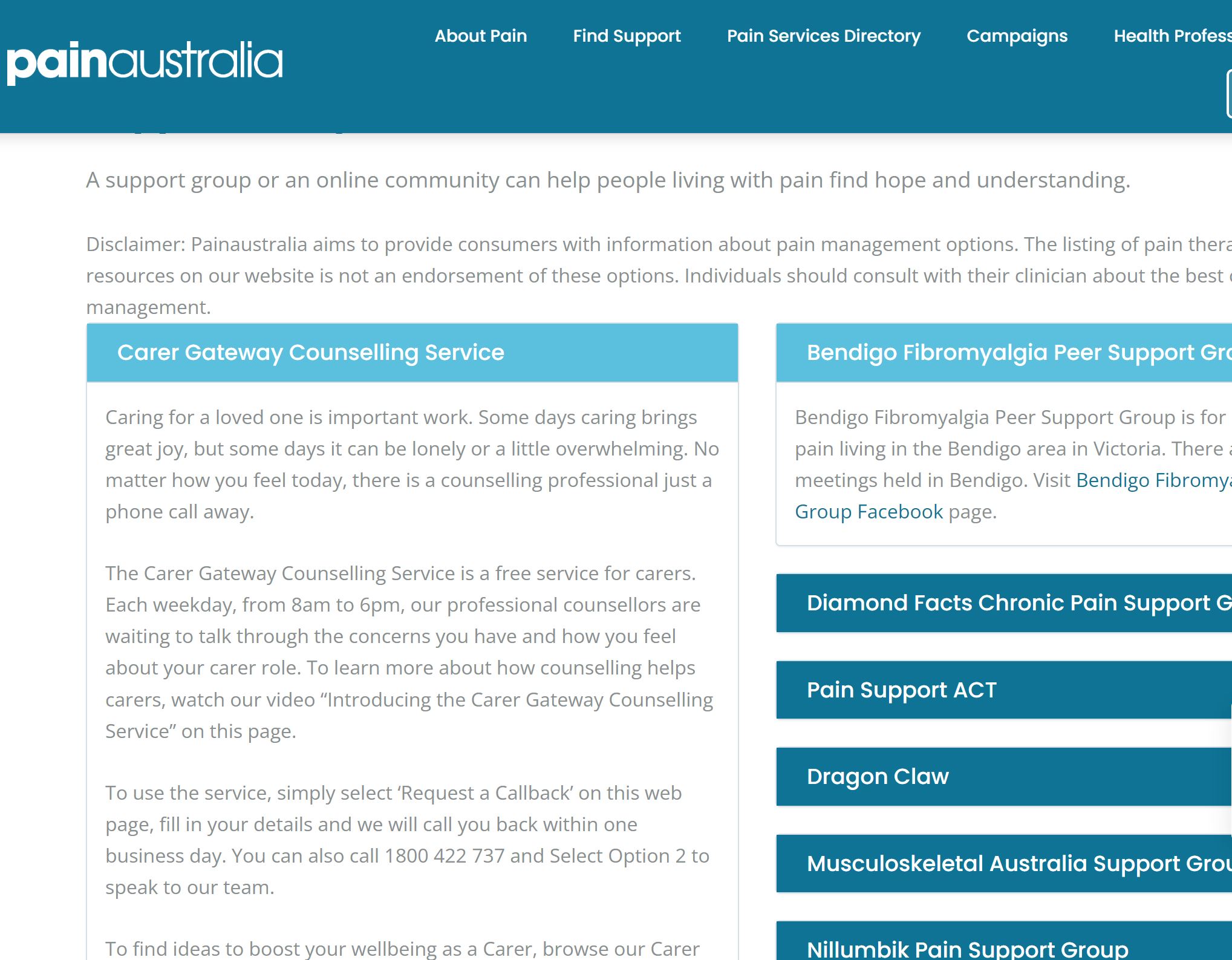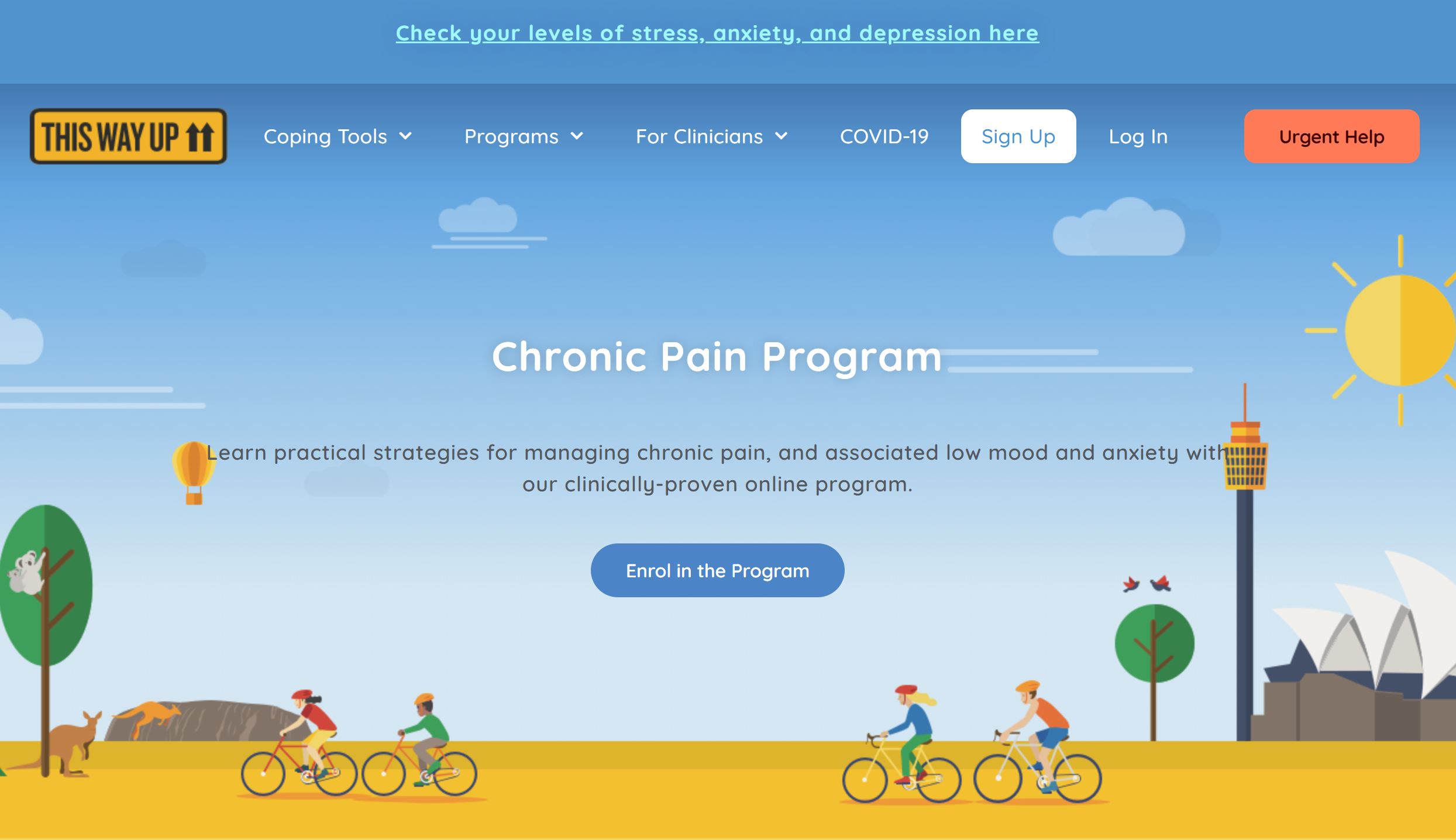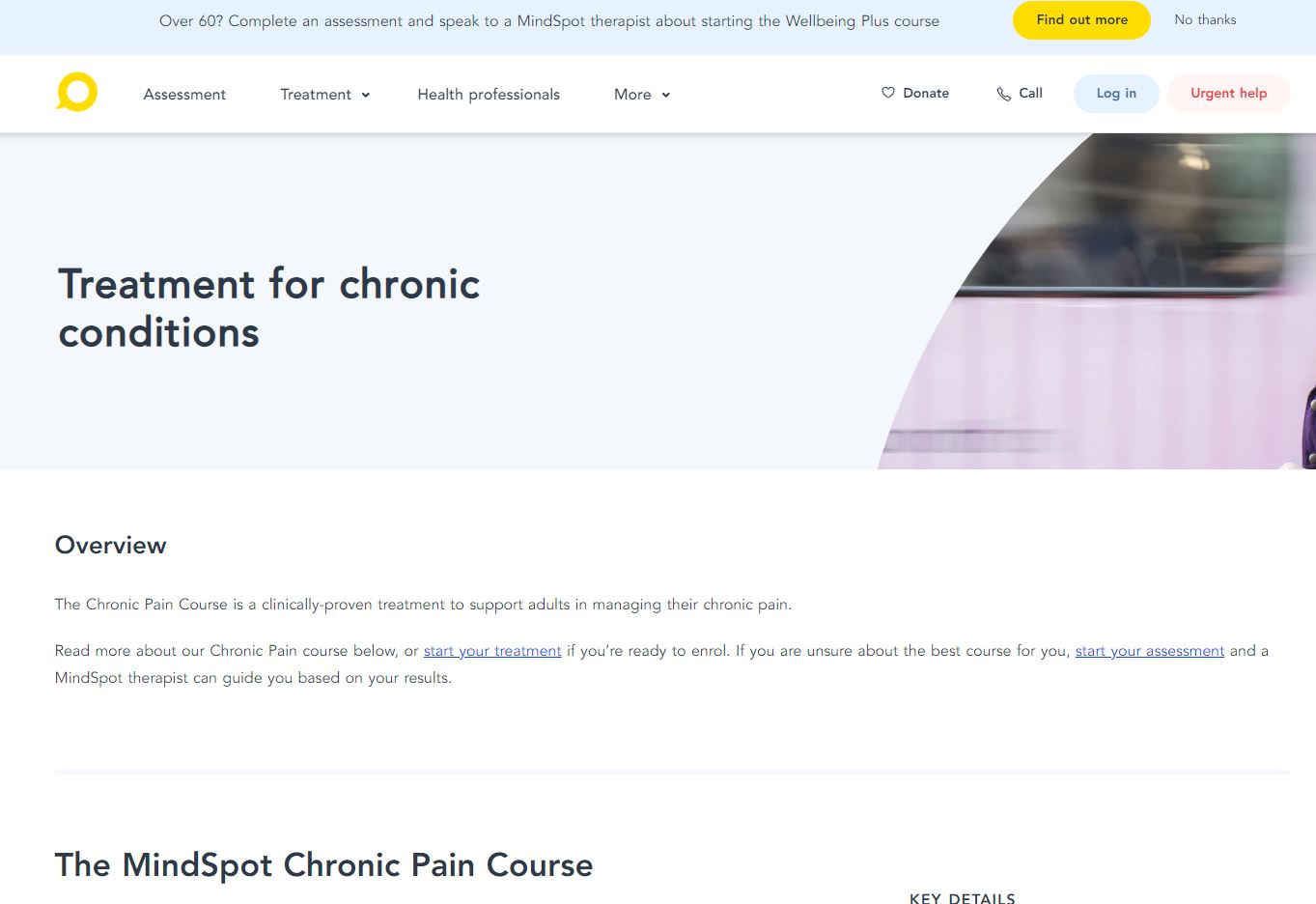Overview
Chronic pain is pain that lasts for at least three months and often a lot longer, sometimes years. You can have chronic pain even when you’re taking medication for it. Chronic pain can be experienced in different ways though most people are aware of their pain almost every day. The pain can range from feeling mild to severe.
What causes chronic pain?
There are lots of reasons why people have chronic pain and sometimes the reason is not known. Common causes are injuries or illness. Medical conditions such as arthritis, cancer, headache, back injury, endometriosis, inflammatory bowel disease, interstitial cystitis, vulvodynia, fibromyalgia, and others can all lead to chronic pain. Some people deal with more than one chronic pain condition at the same time.
How are chronic pain and mental health related?
Research shows a strong link between chronic pain and mental health. This relationship goes both ways. That is, chronic pain can lead to poor mental health, and having a mental health condition can cause chronic pain. Depression and other mood disorders, anxiety, PTSD and substance misuse often occur at the same time as chronic pain conditions. In fact, it is estimated that 30-40% of people with a diagnosed mental health condition also experience chronic pain1. Some mental health conditions, for example, major depression, can make a person feel more sensitive to pain.
Ways to manage chronic pain and mental health
If you have chronic pain and a mental health condition, it is important to get help for them together. Chronic pain and mental health can both have a big effect on your wellbeing. Both can disrupt your sleep, affect your relationships and have an impact on your ability to work.
Medication
Chronic pain and mental ill health are often treated with medications. This can range from paracetamol, ibuprofen, to opioids (for example, oxycodone and morphine). Opioids must be taken with care and under close supervision of your doctor as they are highly addictive. Some medications used to help with mental illness can also help with chronic pain. For example, antidepressant medication may also relieve pain. Speak with your doctor about medication options for you.
Psychotherapy (talking therapy)
Talking to a trained professional can help you find ways to deal with your mental health and get strategies for managing your chronic pain. Psychiatrists and psychologists offer a type of “talking therapy” called psychotherapy. Other specialists who may be able to help include social workers, mental health nurses, occupational therapists and physiotherapists. Not all of these professionals will be right for you. Also, in most instances, you will need to pay above the Medicare rebate to see them. Your general practitioner can suggest the best place to start and the Professional Support page gives more information on each of these specialists.
Complementary and Alternative Therapies
You may find it helpful to try certain complementary and alternative therapies for pain management and to improve mental health. These often work best alongside other approaches. Again, not all will suit your needs. They include:
- Acupuncture
- Aromatherapy
- Hypnotherapy
- Massage
- Tai Chi
- Yoga and mediation
Lifestyle factors
It’s important to look after your physical and mental health by eating healthy food and keeping a regular sleeping routine. Speak to your health professional about ways to get better sleep if your chronic pain is keeping you awake. A physiotherapist can suggest activities to get you moving which will help alleviate pain and improve mental health.
Talking to family and friends
Sometimes it can help to talk to people close to you about your chronic pain and mental health. They might be able to help with daily chores or organise appointments or simply listen.
What can family and friends do to help?
If you want to help someone who is dealing with chronic pain and a mental health condition, you might offer to make appointments for them, inquire about costs for them, go with them to appointments or do research on the areas they are having difficulty with. Knowing there is someone to talk to, someone who will listen without judgement them can help a lot.
Support groups
Talking to people who have similar health difficulties can help. This could be face-to-face at a local support group or through an online community.
References
- https://www.painaustralia.org.au/media-document/blog-1/blog-2020/blog-2019/what-you-need-to-know-about-pain-and-mental-health-in-australia
- https://www.psychiatry.org/News-room/APA-Blogs/Chronic-Pain-and-Mental-Health-Interconnected#:~:text=People%20living%20with%20chronic%20pain,with%20chronic%20pain%20experience%20depression



